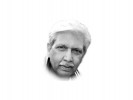Is PTI a movement or an ideology?
To determine why PTI is not finding success it is important for the PTI to find an honest answer to the above dilemma. It calls itself a 'movement' but acts as a political party like any other. That remains the first dichotomy in how it is structured and how it thinks. A movement can base itself on ideology and at an opportune moment clad itself in the garb of a political entity to succeed if power shall define success.
Some political entities will originate as political entities clothed in traditional electoral process and consequences. China's Mao Tse Tung was an ideologue who began a movement to a defined political end. Over a couple of years, he led the movement to victory and replacement of an order that he and his followers fundamentally disagreed with. It seems the PTI fast forwarded to power without internalising the purpose first.
Pakistani politics is less of ideology and more of power grab. That much is clear and hence the various mutations of how politics is shaped in this country and what external factors determine how it will play itself out in governance and policy formulation. It is equally true that political parties hardly enthuse or embrace a political philosophy and act more like a tribe which associates with each other for the common purpose of accessing power to deliver tribal or personal interests.
Hence there is larger importance and value of enablement by external entities than the political process to find power. The arbiters in the process assume disproportionate weight in an exercise which in essence should reflect a level of acceptance with the people, in whose name power is exercised. But then that is too much of principle and adherence to rules and laws........






















 Toi Staff
Toi Staff Sabine Sterk
Sabine Sterk Gideon Levy
Gideon Levy Penny S. Tee
Penny S. Tee Waka Ikeda
Waka Ikeda Mark Travers Ph.d
Mark Travers Ph.d John Nosta
John Nosta Daniel Orenstein
Daniel Orenstein
